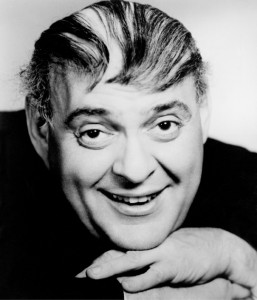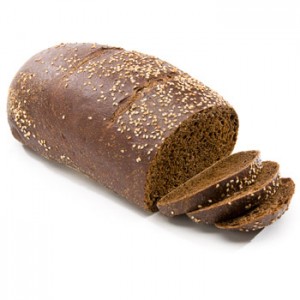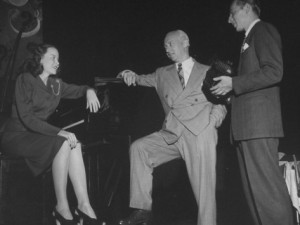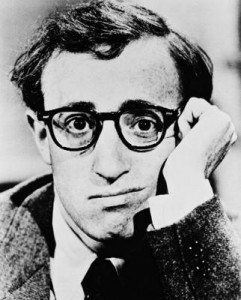HG recently did a post on the good and bad sides of Cedar Bar the legendary hangout of abstract expressionist artists and their hangers on. Its location was University Place in New York’s Greenwich Village neighborhood. A meandering torrent of HG memories ensued. Let’s start with an omelette and burger joint, Cookery, on the corner of 8th and University Place. Food was adequate but secondary. Its renown was based on live jazz. Mary Lou Williams and Alberta Hunter were two of the club’s star performers. Opened in the 50’s and had an almost 30-year run. The owner was a Village legend, the elegant and courtly Barney Josephson. A remarkable guy, Barney was a race relations pioneer. In 1940, he opened a night club — Cafe Society Downtown — in a basement on Sheridan Square. First totally racially integrated — performers and audience — night club in New York and perhaps in the United States. Even the great Harlem clubs of the 20’s — the Cotton Club, etc. — were “whites only.” Yes, a few African-American were seated, but in obscure, hidden locations. Barney changed all that. With the legendary John Hammond acting as talent scout, Barney booked great jazz artists like Billie Holliday and Sarah Vaughan and fledgling stars like Lena Horne. He is also credited for starting the vogue for folk music in Greenwich Village by presenting Josh White. It wasn’t all music. There were laughs. Zero Mostel was the Master of Ceremonies and Imogene Coca and Carol Channing performed there. The club’s press agent, Ivan Black (more on him later), gave Mostel his odd first name: “Because he came from nothing.” A Bronx school teacher, Abel Meeropol (more on him later), approached Barney with a song he had written, Strange Fruit, a passionate, wrenching protest against the lynching of African-Americans. Billie Holliday sang the song and it was a smash. Barney had special rules for the song. It would end her set and there would be no encore. The club would go silent and there would be no service when it was sung. No lights but a baby spot on Holliday’s face. HG was too young for Cafe Society Downtown but heard Billie sing it at the Onyx Club on W. 52nd Street. Same presentation. Devastating. With the success of Cafe Society Downtown, Barney opened Cafe Society Uptown on E. 58th. Both clubs flourished. Then, disaster. Barney’s brother, Leon, was the lawyer for both clubs. A radical leftist (Leon was briefly jailed in Denmark in 1935 for joining in an unsuccessful plot to kill Hitler), Leon was called before the House Un-American Activities Committee at the height of the Red scare. Tough and defiant, Leon refused to testify and was cited for contempt. The Hearst newspapers and their columnists (Westbrook Pegler, Dorothy Kilgallen and Walter Winchell), declared war on
Josephson and the two clubs. Performers were cowed by threats their careers would end if they performed at “commie” clubs. People who patronized the clubs feared reprisals. By 1948 the clubs were gone. Barney was quiet for a while but soon got back in action by founding the Cookery chain. At one point there were five but Barney closed the other four so he could concentrate on the University Place location. The University Place Cookery closed in 1984 after reuniting Jospehson with many of the performers he had introduced at the original Cafe Society. In 1988 he died at 86.
University Place Free Association Part 1: Barney Josephson
June 8th, 2013 § 2 comments § permalink
Woody Allen’s New York
April 11th, 2013 § 0 comments § permalink
In the early 1950’s, a scrawny kid named Alan Konigsberg was writing gags for New York press agent David Alber. Alber, of course, would submit these little bon mots of humour to the reigning Broadway columnists in exchange for mentions of his clients. At the same time, HG (in his morally conflicted role as journalist and moonlighting press agent) was writing gags and newsy tidbits for the columnists (Walter Winchell, king of the columns, liked HG’s stuff). As HG has often remarked: “I went on to fame and fortune. Wonder what happened to the Konigsberg kid?” Well, Konigsberg changed his name to Woody Allen and has been busy lighting up the world with his comic genius for more than 50 years. These were some HG memories last night as HG and BSK watched Whatever Works, the Allen comedy starring Larry David. Allen originally wrote the movie with Zero Mostel in mind but Mostel died before it could be made. It would have been better with Mostel. Larry David, a gifted comedy writer and a funny man in his improvised riffs on the television program Curb Your Enthusiasm, is not a film actor and can’t really carry a movie. Zero, a mad comic monster, would have been a smash. Still, HG enjoyed the movie because, once more, Woody Allen displayed his intense love for New York. Lots of Greenwich Village street scenes and Chinatown food shopping (lovingly photographed). There’s even a vignette featuring the Yonah Shimmel knish shop on Houston Street. In Allen’s New York everyone seems to live in great apartments or lofts. There’s lots of dining in pleasant restaurants. Best of all, beautiful shiksas (non-Jewish girls) find neurotic, verbal, physically unprepossessing Jewish guys sexually irresistible. As the saying goes: “From Allen’s mouth to God’s ear.” But, maybe Woody has a point. After all. HG met and won the heart of BSK in New York.
Zero
April 28th, 2011 § 0 comments § permalink
 Zero Mostel portrait on last post spurred HG thoughts about that comic genius/egomaniac/monster. He got his unusual name when he made his debut at the Cafe Society night club in Greenwich Village. He had no background. No reputation. Therefore, he was dubbed “Zero.” Of course, he was a sensation and his career took off like a comet until he was blacklisted in the Joe McCarthy Red Menace era. Zero named no names and rebuffed the inquisitors. He retired to his studio in the wholesale flower district of Manhattan and painted. He was quite a good painter. He outlasted McCarthy and triumphed in film with “The Producers,” and on Broadway with “Fiddler on the Roof,” and many other plays.
Zero Mostel portrait on last post spurred HG thoughts about that comic genius/egomaniac/monster. He got his unusual name when he made his debut at the Cafe Society night club in Greenwich Village. He had no background. No reputation. Therefore, he was dubbed “Zero.” Of course, he was a sensation and his career took off like a comet until he was blacklisted in the Joe McCarthy Red Menace era. Zero named no names and rebuffed the inquisitors. He retired to his studio in the wholesale flower district of Manhattan and painted. He was quite a good painter. He outlasted McCarthy and triumphed in film with “The Producers,” and on Broadway with “Fiddler on the Roof,” and many other plays.
HG remembers waiting before the smoked fish counter at Zabar’s, the renowned food emporium on the Upper West Side. Zero was there and he and HG chatted and expressed mutual admiration for Zabar’s Russian pumpernickel bread. HG told Zero pumpernickel and chicken fat had been his favorite after school snack. Commented Zero: “Pumpernickel and chicken fat killed more Jews than Hitler.”

